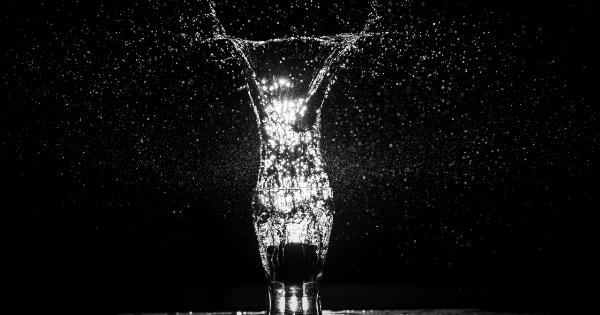Menopause is a natural biological process that marks the end of reproductive years in women. It is not a disease but a normal phase of life. Yet, it is often surrounded by myths, misconceptions, and negative attitude.
Women are made to feel ashamed, embarrassed or invisible due to the stigma attached to menopause. This article aims to confront the stigma of menopause by dispelling the myths, providing facts and information, and empowering women to embrace this life stage.
Myths about Menopause
Myth 1: Menopause is only for old women
Menopause can occur anytime between the ages of 40 to 60, with the average age being 51. However, some women can experience menopause earlier or later.
Premature menopause, before the age of 40 is rare, but it can happen due to genetics, surgery, or certain medical treatments. Menopause is not a sign of old age, but a natural progression of life.
Myth 2: Menopause means the end of sexuality
Menopause does not mean the end of sex life. In fact, some women report an increase in sexual desire and pleasure after menopause, due to hormonal changes and freedom from the fear of pregnancy.
However, menopause can cause changes in the vagina, such as dryness, thinning of tissues, or discomfort during sex, which can be managed with lubricants, hormone therapy, or other medical treatments.
Myth 3: Menopause is a time of depression and mood swings
While some women may experience mood swings, irritability, or emotional upheavals during menopause due to hormonal fluctuations, these symptoms are not universal or inevitable.
Many women feel liberated, confident, and energized after menopause, as they no longer have to worry about menstrual cycles or pregnancy.
Effects of Menopause
Physical Effects
Menopause is associated with several physical changes in the body, such as hot flashes, night sweats, insomnia, weight gain, joint pain, and decreased bone density.
Hot flashes are sudden sensations of heat that can occur several times a day, leading to sweating, palpitations, and discomfort. Night sweats are hot flashes that occur during sleep, causing damp or wet clothes, sheets, and pillows. Insomnia or difficulty in falling or staying asleep can be due to hot flashes, anxiety, or other reasons.
Weight gain can occur due to decreased metabolism, hormonal changes, or lifestyle factors. Joint pain can be due to reduced estrogen levels, which affect the elasticity and lubrication of joints. Decreased bone density or osteoporosis is a common consequence of menopause, which increases the risk of fractures and injuries.
Psychological Effects
Menopause can also have psychological effects, such as anxiety, depression, stress, or lack of confidence. These effects can be due to hormonal changes, social factors, or personal attitudes.
Anxiety can be due to the fear of hot flashes, sleep problems, or other physical symptoms. Depression can be due to the loss of reproductive function, changes in body image, or feelings of isolation. Stress can be due to the demands of work, family, or relationships.
Lack of confidence can be due to the societal stigma of menopause, which promotes youthfulness, beauty, and fertility.
Managing Menopause
Healthful Habits
Women can manage the physical and psychological effects of menopause by adopting healthy habits, such as regular exercise, balanced diet, stress reduction, and self-care.
Exercise can help in maintaining bone density, reducing weight gain, and improving mood. A balanced diet that includes calcium, vitamin D, and other nutrients can also support bone health and overall wellbeing. Stress reduction techniques such as yoga, meditation, or mindfulness can help in calming the mind and improving sleep quality.
Self-care practices such as massage, acupuncture, or aromatherapy can also alleviate symptoms and promote relaxation.
Medical Treatments
Women can also seek medical treatments for menopause-related symptoms, such as hormone therapy, non-hormonal therapy, or other medications.
Hormone therapy involves the use of estrogen or estrogen and progesterone to replace the hormones that the body no longer produces after menopause. Hormone therapy can relieve symptoms such as hot flashes, night sweats, vaginal dryness, and mood swings. However, hormone therapy has risks such as breast cancer, heart disease, and stroke, and should be discussed with a doctor.
Non-hormonal therapy includes medications such as antidepressants, anticonvulsants, or blood pressure drugs, which can also reduce hot flashes, mood changes or pain. Alternative therapies such as herbal supplements, acupuncture, or chiropractic can also have benefits but need to be used with caution and under professional guidance.
Embracing Menopause
While menopause can be a challenging phase of life, it can also be an opportunity for growth, renewal, and self-discovery.
Women can embrace menopause by avoiding the stigma, myths, and stereotypes associated with it, and by celebrating the positive aspects of this life stage. Menopause can be a time to experiment with new hobbies, skills, or interests, to connect with new friends, or to travel and explore new places.
Menopause can also be a time to reflect on one’s values, goals, and priorities in life, and to express one’s creativity, spirituality, or wisdom. Menopause can be a time to feel proud, empowered, and beautiful, as women who have lived and learned from their experiences.
Conclusion
Menopause is a normal and natural phase of life that deserves respect, education, and support.
By confronting the stigma of menopause, women can feel empowered, informed, and confident in managing the physical, psychological, and social aspects of this life stage. Women can live their lives fully and joyfully, regardless of age or reproductive status, and can celebrate menopause as a new beginning, rather than an end.






























